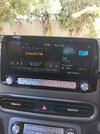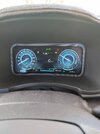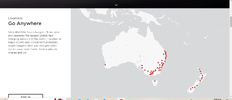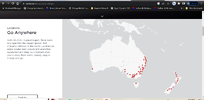- Joined
- 14 February 2005
- Posts
- 15,536
- Reactions
- 18,266
Furthest I've ever driven in one day is just on 1000km. Strangely enough that was in Tasmania.Depends what you definition of "a lot of kilometres every day" is.
Other than that, did 600 - 700 plenty of times touring around WA.
Adelaide - Melbourne is about 750km and have done that more than once with a ~half hour stop in the middle of the trip.
Not personally but I know someone who periodically does a daytrip to Broken Hill from Adelaide. It's about 500km each way.
I'm not arguing against EV's but widespread charging infrastructure will be required definitely.






